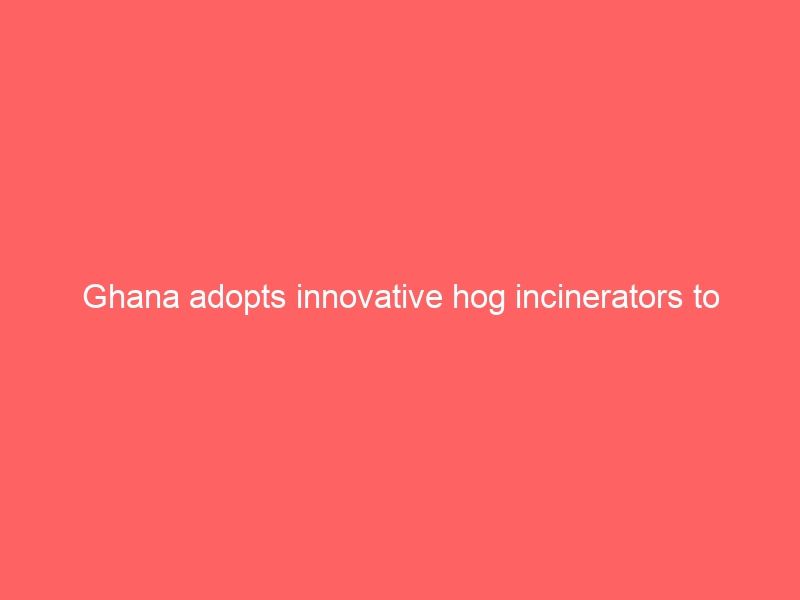In an effort to address the growing waste management and sanitation challenges in Ghana, the government has recently adopted an innovative solution – hog incinerators.
The Hog Incinerator Solution
Hog incinerators are specially designed facilities that use high temperatures to safely and efficiently dispose of organic waste, including animal carcasses and food scraps. These incinerators are equipped with advanced filtration systems to minimize air and water pollution, making them an environmentally-friendly waste management solution.
The Impact on Waste Management
With the implementation of hog incinerators, Ghana hopes to significantly reduce the amount of organic waste that ends up in landfills or is improperly disposed of, which can lead to environmental contamination and public health risks. By burning organic waste at high temperatures, the incinerators also help to minimize the production of greenhouse gases, contributing to efforts to combat climate change.
Improving Sanitation
In addition to managing waste, hog incinerators also play a crucial role in improving sanitation in Ghana. By efficiently disposing of organic waste, the incinerators help prevent the spread of diseases and reduce the presence of pests and vermin that are attracted to decomposing organic matter. This ultimately contributes to creating cleaner and healthier living environments for communities across the country.
Government Initiatives
The adoption of hog incinerators is part of a larger effort by the Ghanaian government to modernize waste management practices and enhance public health standards. In addition to investing in waste-to-energy technologies, the government is also promoting public awareness and education on proper waste disposal and recycling.
The Road Ahead
As Ghana continues to tackle its waste management and sanitation challenges, the adoption of innovative solutions like hog incinerators represents a significant step forward. By prioritizing sustainable and environmentally-friendly waste management practices, the country is laying the groundwork for a cleaner, healthier, and more sustainable future.








